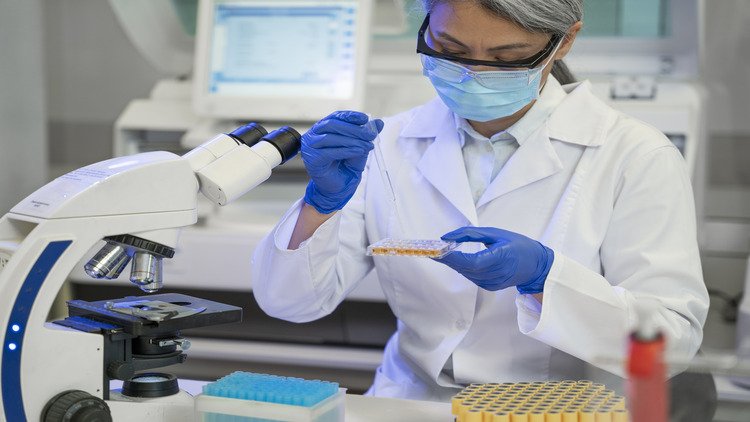Preimplantation genetic testing (PGT) represents a significant advancement in reproductive technology and genetic science. It’s a specialized procedure used during In vitro fertilization (IVF) to screen embryos for genetic defects before implantation. This blog explores the intricacies of PGT, including its types, processes, benefits, ethical considerations, and future implications.
What is Preimplantation Genetic Testing?
PGT is a diagnostic technique examining the genetic makeup of embryos produced through IVF before they are transferred to the uterus. The primary goal of PGT is to identify genetic abnormalities that could lead to serious genetic diseases, thereby increasing the chances of a healthy pregnancy.
Types of Preimplantation Genetic Testing
PGT is categorized into several types, each serving different purposes:
- PGT-A (Aneuploidy Screening): This form of testing checks for an abnormal number of chromosomes. Aneuploidy, where there are too few or too many chromosomes, is a common reason for miscarriages and can result in conditions like Down syndrome.
- PGT-M (Monogenic/Single Gene Disorders): This type detects specific inherited disorders such as cystic fibrosis or sickle cell disease. It’s particularly valuable for couples who are carriers of recessive genetic diseases.
- PGT-SR (Structural Rearrangements): This testing detects embryos with structural changes in their chromosomes, such as translocations or inversions, which can lead to genetic diseases or infertility.
How Does Preimplantation Genetic Testing Work?
The PGT process involves several steps:
- Ovarian Stimulation: Medication stimulates the ovaries to produce multiple eggs.
- Egg Retrieval and Fertilization: Eggs are retrieved and fertilized in the lab with sperm.
- Embryo Culture: Fertilized eggs develop into embryos cultured in the lab for about five to six days.
- Biopsy: A few cells are removed from each embryo at the blastocyst stage.
- Genetic Analysis: The extracted cells are analyzed for genetic abnormalities.
- Embryo Transfer: Healthy embryos without detectable genetic issues are transferred to the uterus.
Benefits of Preimplantation Genetic Testing
PGT offers several advantages:
- Reduced Risk of Genetic Disorders: By selecting embryos without genetic abnormalities, PGT decreases the likelihood of genetic disorders.
- Decreased Miscarriage Rates: Embryos with the correct number of chromosomes are less likely to result in miscarriage.
- Informed Choices: Couples can make informed decisions about their reproductive options.
- Family Balancing: Although controversial, PGT can be used for sex selection for family balancing purposes.
Ethical Considerations
PGT raises important ethical questions:
- Selection and Discrimination: The ability to select embryos based on genetic characteristics can lead to ethical dilemmas about the value of different lives and potential discrimination against individuals with disabilities.
- Access and Inequality: The high cost of PGT and IVF treatments can exacerbate inequalities in access to advanced reproductive technologies.
- Regulatory Challenges: There is ongoing debate about how PGT should be regulated, especially concerning non-medical uses like selecting for preferred traits.
The Future of Preimplantation Genetic Testing
Advancements in genetic technology may lead to more comprehensive and accurate testing, making PGT an integral part of reproductive medicine. Future innovations could allow for the correction of genetic defects at the embryo stage, though this also amplifies ethical and regulatory challenges.
Preimplantation genetic testing is a transformative tool in reproductive genetics, offering couples the chance to avoid the transmission of severe genetic disorders. While it brings hope for many, it also requires careful consideration of its ethical and social implications. As we advance in our genetic capabilities, society must navigate these complexities with a focus on equity, ethics, and empathy.
Asha IVF & Fertility Centre: A Premier Destination for PGT
Asha IVF & Fertility Centre is a leading institution for couples seeking preimplantation genetic testing (PGT). Renowned for its state-of-the-art facilities and a team of highly skilled reproductive specialists, At Asha IVF, Dr. Astha Chakravarty offers comprehensive PGT services tailored to meet individual genetic concerns. The center employs advanced technologies that ensure high accuracy and reliability in detecting genetic abnormalities, making it one of the best choices for those undergoing IVF. With a compassionate approach and a commitment to ethical practices, Asha IVF & Fertility Centre prioritizes patient education and informed decision-making, offering support throughout treatment. The center’s success rates in achieving healthy pregnancies further cement its reputation as a top choice for couples considering PGT as part of their journey to parenthood.

